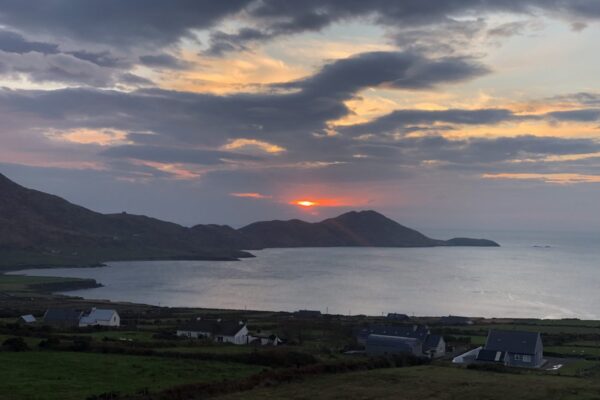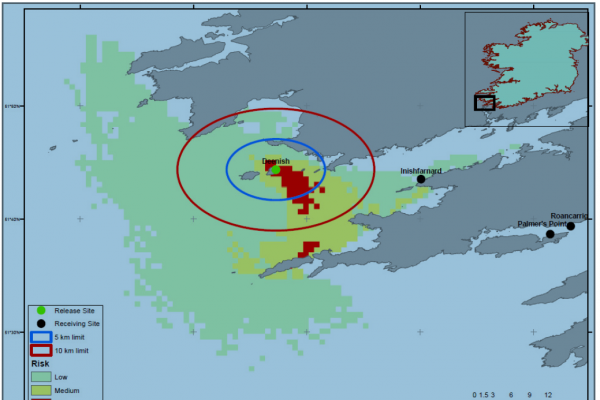-
Launch of Salmon Watch Ireland’s 2025 Policy Statement – A Call to Protect Ireland’s Wild Atlantic Salmon
We are pleased to share with you Saving the Irish Salmon – Policy Statement 2025, Salmon Watch Ireland’s updated and comprehensive plan to safeguard one of our nation’s most iconic species. This revised policy builds on our original 2019 proposals and reflects the urgent challenges now facing wild Atlantic salmon. Numbers have fallen by approximately 90% since the 1970s, and without decisive action, salmon could become a rare sight in Irish rivers within our lifetime. The document outlines: The current crisis in salmon stocks, its causes, and the growing threats from climate change, habitat loss, pollution, overfishing, aquaculture impacts, by-catch and barriers to migration. A science-based framework for reversing the decline, focusing on habitat restoration, barrier removal, predator management, and stricter regulation of exploitation and aquaculture. Policy recommendations for government, agencies, communities, and international partners, including reforms to the Salmon Conservation Fund and the creation of an independent Aquaculture Authority. This is not just a policy document – it is a call to action. Protecting salmon will require leadership, cross-sector collaboration, and strong public support. We invite you to read the full statement, join the conversation, and help us in building the momentum for change. You can access the full policy document in the attached. While the policy document is comprehensive, we anticipate that the detailed management of Ireland’s salmon resource will need to evolve in response to emerging challenges, ensuring the strategy remains effective and delivers lasting results. Thank you for your continued commitment to Ireland’s environment and biodiversity. Together, we can ensure that future generations inherit healthy rivers and thriving salmon runs
Continue reading -
Update 18 March 2025
Waterville Fishery: A look back at research in the period 1980 - 1986 It is calamitous that the fishery now has few sea trout and to repeat this research may not be possible today. Certainly, a situation which can be rescued but only with your help.
Continue reading -
Deenish Island – Re-establishment ongoing
Deenish Island salmon farm is currently undergoing extensive upgrading (October 2024) for the next stocking of smolts in February 2025, despite being ordered to close in 2019. This demonstrates the very obvious failings of government bureaucracy whereby the appeal against closure is ongoing for nearly six years. It is depressing that such a situation is allowed to continue while the sea trout population continues to descend into oblivion. The Butler Pool, Waterville. The present situation is that MOWI have an appeal before the Aquaculture Licence Appeals Board for six years against closure and have also applied for a renewal and review of their expired licence earlier this year. MOWI have been permitted to continue to produce salmon despite their abject failure to comply with their licence terms and conditions. This farm is withing nine kilometers of Lough Currane and is essentially a reservoir for sea lice, disease and other pathogens which have driven the regional stocks of sea trout into crisis. This was once a famous destination for local , national and international visitors from April to October and is now essentially extinguished as a destination for angling. This is an a appalling situation and suggests that the Department of Agriculture, Marine and Food is hiding behind a wall of bureaucracy to allow continuation of this appalling practice at Deenish. It is well worth mentioning that up to three million Euro is being lost to the local economy each year through loss of revenue to Waterville and surrounding area. This is not to mention the appalling destruction of biodiversity. This film by Vincent Hyland demonstrates what has been lost to Waterville. These are now the Ghosts of times past. https://salmonwatchireland.ie/wp-content/uploads/2024/11/FDownloader.Net_AQOoERmIqysNQwhmGL9nTNXsNREiUUX1_GSqOp-_CZjAIVjyL0cvP6qAW56wgal3jPvMJBmviec_8L2wXi8kTRwk_720p_HD.mp4 We have made numerous submissions on the subject which can be viewed here: Deenish Submission Inishfarnard Kenmare Bay - Submission Complaint to EU - Sec 19 We are asking you to send to your local election candidates and ask their help in stopping this environmental disaster. The following video of Deenish Island Salmon Farm in June 2023 demonstrates the level of salmon stocked and the stressful reaction of the fish to high water temperatures. There has been over 40 percent mortality on this farm and others in Kenmare Bay resulting in circa one and a half million mortalities over the past decade. https://salmonwatchireland.ie/wp-content/uploads/2024/11/AQOGlPuMr9u2PdyAiIy1D35GAT7uT7pxzbenDmG2WtpgvvYTmHtBrydD1ifuwzut-1SUK7DoN5jW7By4TufrFNSx.mp4
Continue reading -
Marine Institute - Year in Review - Declining Salmon Count and Low Levels of sea trout The Marine Institute Year in Review 2023 includes a comprehensive count of wild salmon and sea trout for 2023 and demonstrates a declining and unstable population of wild salmon and dramatic population collapse of sea trout. The data covering the period 2019 to 2023 demonstrates a declining trend of survival at sea for wild salmon and reared grilse. It is interesting to note the much improved output of salmon smolts from the relatively higher return of adults in 2020 demonstrating a strong correlation between spawning numbers and smolt output. This system is below its conservation limit due to poor adult return rates and productivity is negatively affected by environmental factors in fresh water. It is evident that more spawning fish, especially fish that are in generally good condition as witnessed in 2020 deposit more ova thus increasing productivity. This is particularly important in rivers where salmon numbers are depressed and where every salmon should be allowed to spawn. This fits in with our policy relating to exploitation and while the majority of rivers are closed to exploitation some remain open and should be treated with caution. Anglers should consider their own conduct and limit their catch. We have advocated for a reduction in tags, one salmon in spring period and return of salmon over 65cm during the summer period while advocating for catch and release of all salmon in September. We have also advocated for a cessation of commercial netting of salmon. The Data demonstrates a reducing trend in sea survival from 10.18 percent in the cohort of smolts which went to sea in 2019, through to 2022 at 5.56 percent. The decreasing trend from 2019 to 2022 smolt cohorts is as follows, 10.18, 7.17, 5.88 and 5.65 (Provisional Data 2023) percent. It is alarming but not a surprise to see the declining trend in survival at sea. 2024 did show an increase in some catchments regarding grilse numbers and it will be interesting to see data from the Marine Institute in next years report. The paltry number of sea trout returning is not surprising and this graph really demonstrates the issue. Salmon Farming is the cause of this collapse and cannot be denied.
Continue reading




